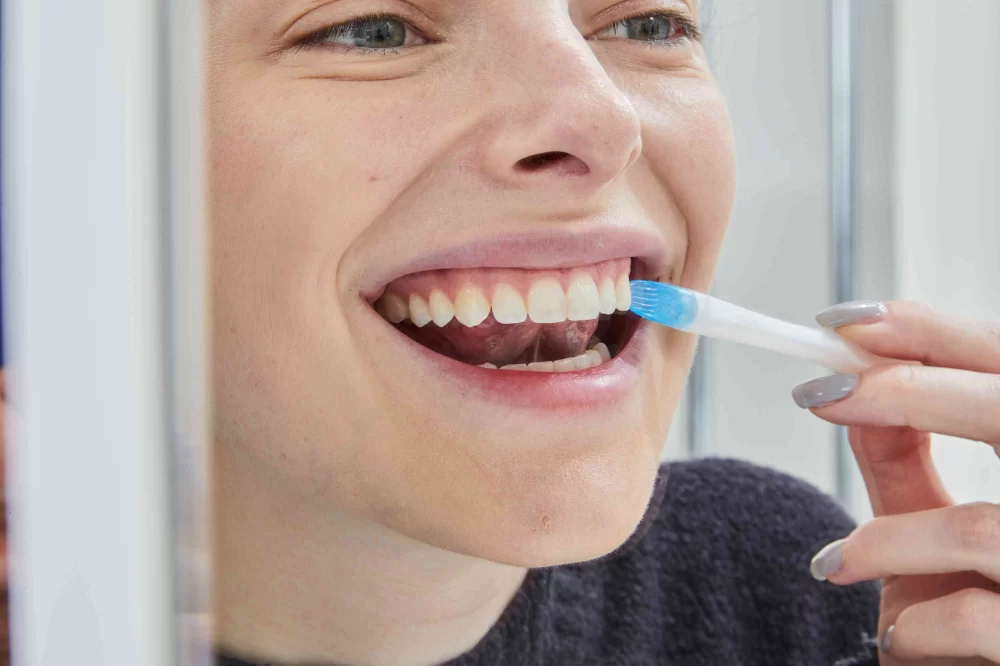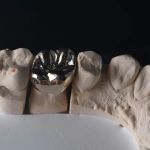
- Understanding Tooth Sensitivity After Whitening
- Causes of Sensitivity Post-Whitening
- Practical Strategies to Prevent Sensitivity
- Real-Life Experience with Sensitivity Prevention
- Professional Insights and Recommendations
- Finding the Right Products and Services
Understanding Tooth Sensitivity After Whitening
Teeth whitening treatments have surged in popularity due to their ability to transform smiles quickly and effectively. However, one common issue many face is tooth sensitivity after whitening. This sensitivity usually manifests as a sharp, temporary discomfort or pain when consuming hot, cold, or sweet foods and beverages. It can be frustrating and even discourage people from maintaining their whitening routine. Understanding why sensitivity occurs is the first step toward learning how to prevent tooth sensitivity after whitening effectively.
The Whitening Process and Tooth Sensitivity
Professional and at-home whitening products often use peroxide-based agents to break down stains on the enamel. While these agents brighten the teeth, they can also penetrate through the enamel to the underlying dentin, where nerve endings reside. This can temporarily irritate the nerves, leading to sensitivity. Typically, this sensitivity is mild and short-lived, but for some, it can be intense enough to interfere with daily life.
Who Is Most at Risk?
Individuals with naturally thin enamel, exposed dentin due to gum recession, or pre-existing dental conditions are more prone to experiencing post-whitening sensitivity. Understanding personal risk factors helps tailor preventive measures more effectively.
Causes of Sensitivity Post-Whitening
Several factors contribute to tooth sensitivity following whitening treatments. Here we explore the main causes in detail:
1. Enamel Permeability
The enamel acts as a protective barrier for teeth, but whitening agents temporarily increase its permeability. This change allows chemical agents to reach deeper layers of the tooth, triggering nerve sensitivity.
2. Concentration and Duration of Whitening Agents
Higher concentrations of whitening gel and longer exposure times increase the likelihood of sensitivity. Overusing whitening products or applying them incorrectly can exacerbate this issue.
3. Individual Biological Differences
Variations in enamel thickness, dentin tubule size, and the presence of micro-cracks influence how sensitive a person becomes after whitening. Some may never experience discomfort, while others might be highly sensitive.
Practical Strategies to Prevent Sensitivity
Fortunately, tooth sensitivity after whitening is preventable and manageable with careful steps before, during, and after the treatment.
1. Use Desensitizing Toothpaste Regularly
Incorporate toothpaste containing potassium nitrate or fluoride into your oral hygiene routine at least two weeks before whitening. These ingredients help block nerve responses and strengthen enamel, reducing the chance of sensitivity.
2. Follow Professional Guidance Strictly
Always adhere to recommended usage instructions from dental professionals or product manufacturers. Avoid prolonged or excessive application of whitening agents.
3. Limit Consumption of Acidic and Hot/Cold Foods
After whitening, teeth can be temporarily vulnerable. Reducing intake of acidic drinks like citrus juices and hot or cold beverages can prevent additional irritation.
4. Use Lower Concentration Whitening Products
Especially for at-home treatments, opt for milder formulas to minimize sensitivity risk. Alternatively, consider professional whitening sessions where dentists can customize the strength safely.
5. Apply Fluoride Treatments
Fluoride varnishes or gels applied after whitening help remineralize enamel and close dentin tubules, protecting against sensitivity. Your dentist can provide these treatments or recommend over-the-counter options.
Real-Life Experience with Sensitivity Prevention
Consider the story of Jessica, a graphic designer who struggled with severe tooth sensitivity after trying a popular home whitening kit. After switching to a professionally supervised whitening plan, combined with the use of desensitizing toothpaste and fluoride rinses, her sensitivity diminished significantly. She credits careful product choice and following expert advice as key factors in enjoying a brighter smile without discomfort.
Jessica's case is not unique. Many who initially experience sensitivity find relief by adjusting their whitening approach rather than abandoning it altogether. These personal stories emphasize the importance of patience and tailored care in whitening journeys.
Professional Insights and Recommendations
Dentists emphasize the importance of consultation before starting any whitening procedure. They recommend:
Customized Whitening Plans
Personalized plans consider enamel condition, tooth sensitivity history, and lifestyle factors to choose the safest whitening method and product strength.
Post-Whitening Care Instructions
Proper aftercare, including avoiding staining foods and practicing gentle brushing, helps maintain whitening effects and reduces sensitivity risks.
Routine Check-Ups
Regular dental visits enable early detection of enamel wear or sensitivity issues, allowing timely intervention.
Experts at Dentistry Toothtruth stress that professional advice and high-quality dental products tailored to individual needs provide the best defense against tooth sensitivity after whitening.
Finding the Right Products and Services
Choosing suitable whitening products and supportive dental care items plays a crucial role in preventing sensitivity. Websites like Dentistry Toothtruth offer a curated selection of reliable whitening kits, desensitizing toothpastes, and fluoride treatments recommended by dental professionals.
Additionally, Dentistry Toothtruth provides access to trusted dental services where experienced clinicians can guide you through safe whitening procedures and personalized aftercare plans. Leveraging such resources ensures your whitening experience remains positive and sensitivity-free.
In conclusion, preventing tooth sensitivity after whitening requires a combination of understanding the causes, adopting smart preventive habits, seeking professional advice, and selecting the right products. By taking these steps, you can enjoy a dazzling smile comfortably and confidently.







 Desert Cactus Dentistry4.0 (619 review)
Desert Cactus Dentistry4.0 (619 review) Park Street Dental5.0 (383 review)
Park Street Dental5.0 (383 review) Rise Dental Studio - Dr. Justin Rashbaum4.0 (50 review)
Rise Dental Studio - Dr. Justin Rashbaum4.0 (50 review) Regency Dental Care5.0 (412 review)
Regency Dental Care5.0 (412 review) Universal Dentistry4.0 (144 review)
Universal Dentistry4.0 (144 review) UCLA Venice Dental Center3.0 (41 review)
UCLA Venice Dental Center3.0 (41 review) The Importance of Oral Health Education During Pregnancy for a Healthy Pregnancy
The Importance of Oral Health Education During Pregnancy for a Healthy Pregnancy Best Tips for Brushing Your Teeth Properly for Healthy Gums: Essential Techniques for Oral Health
Best Tips for Brushing Your Teeth Properly for Healthy Gums: Essential Techniques for Oral Health Why Skipping Dental Checkups Can Lead to Bigger Oral Health Problems
Why Skipping Dental Checkups Can Lead to Bigger Oral Health Problems Advantages of Porcelain Dental Restorations
Advantages of Porcelain Dental Restorations How Can Diabetes Cause Tooth and Gum Problems? Preventing and Managing Oral Health Issues
How Can Diabetes Cause Tooth and Gum Problems? Preventing and Managing Oral Health Issues Healthy Habits for Promoting Good Oral Health and Hygiene: Tips for a Healthy Smile
Healthy Habits for Promoting Good Oral Health and Hygiene: Tips for a Healthy Smile